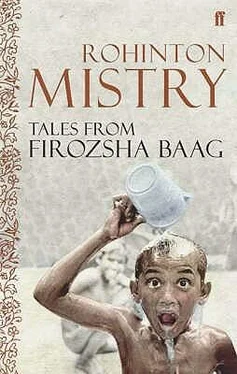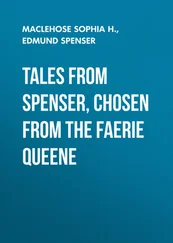Rohinton Mistry - Tales From Firozsha Baag
Здесь есть возможность читать онлайн «Rohinton Mistry - Tales From Firozsha Baag» весь текст электронной книги совершенно бесплатно (целиком полную версию без сокращений). В некоторых случаях можно слушать аудио, скачать через торрент в формате fb2 и присутствует краткое содержание. Год выпуска: 2006, Издательство: Faber & Faber, Жанр: Современная проза, на английском языке. Описание произведения, (предисловие) а так же отзывы посетителей доступны на портале библиотеки ЛибКат.
- Название:Tales From Firozsha Baag
- Автор:
- Издательство:Faber & Faber
- Жанр:
- Год:2006
- ISBN:нет данных
- Рейтинг книги:3 / 5. Голосов: 1
-
Избранное:Добавить в избранное
- Отзывы:
-
Ваша оценка:
- 60
- 1
- 2
- 3
- 4
- 5
Tales From Firozsha Baag: краткое содержание, описание и аннотация
Предлагаем к чтению аннотацию, описание, краткое содержание или предисловие (зависит от того, что написал сам автор книги «Tales From Firozsha Baag»). Если вы не нашли необходимую информацию о книге — напишите в комментариях, мы постараемся отыскать её.
Tales From Firozsha Baag — читать онлайн бесплатно полную книгу (весь текст) целиком
Ниже представлен текст книги, разбитый по страницам. Система сохранения места последней прочитанной страницы, позволяет с удобством читать онлайн бесплатно книгу «Tales From Firozsha Baag», без необходимости каждый раз заново искать на чём Вы остановились. Поставьте закладку, и сможете в любой момент перейти на страницу, на которой закончили чтение.
Интервал:
Закладка:
Finally, after her tears subsided she asked, “Is Jehangir home?” He wasn’t. “Would you ask him to come and see me this Sunday? At ten? Tell him I won’t keep him long.”
Jehangir was a bit apprehensive when his mother gave him the message. He couldn’t imagine why Mrs. Mody would want to see him.
On Sunday, as he prepared to go next door, he was reminded of the Sundays with Dr. Mody, the kindly man who had befriended him, opened up a new world for him, and then repudiated him for something he had not done. He remembered the way he would scratch the greyish-red patches of psoriasis on his elbows. He could still picture the sorrow on his face as, with the utmost reluctance, he had made his decision to end the friendship. Jehangir had not blamed Dr. Mody then, and he still did not; he knew how overwhelmingly the evidence had been against him, and how much that stamp had meant to Dr. Mody.
Mrs. Mody led him in by his arm: “Will you drink something?”
“No, thank you.”
“Not feeling shy, are you? You always were shy.” She asked him about his studies and what subjects he was taking in high school. She told him a little about Pesi, who was still in boarding-school and had twice repeated the same standard. She sighed. “I asked you to come today because there is something I wanted to give you. Something of Burjor Uncle’s. I thought about it for many days. Pesi is not interested, and I don’t know anything about it. Will you take his collection?”
“The album in his drawer?” asked Jehangir, a little surprised.
“Everything. The album, all the boxes, everything in the cupboard. I know you will use it well. Burjor would have done the same.”
Jehangir was speechless. He had stopped collecting stamps, and they no longer held the fascination they once did. Nonetheless, he was familiar with the size of the collection, and the sheer magnitude of what he was now being offered had its effect. He remembered the awe with which he had looked inside the cupboard the first time its doors had been opened before him. So many sweet tins, cardboard boxes, biscuit tins…
“You will take it? As a favour to me, yes?” she asked a second time, and Jehangir nodded. “You have some time today? Whenever you like, just take it.” He said he would ask his mother and come back.
There was a huge, old iron trunk which lay under Jehangir’s bed. It was dented in several places and the lid would not shut properly. Undisturbed for years, it had rusted peacefully beneath the bed. His mother agreed that the rags it held could be thrown away and the stamps temporarily stored in it till Jehangir organized them into albums. He emptied the trunk, wiped it out, lined it with brown paper and went next door to bring back the stamps.
Several trips later, Dr. Mody’s cupboard stood empty. Jehangir looked around the room in which he had once spent so many happy hours. The desk was in exactly the same position, and the two chairs. He turned to go, almost forgetting, and went back to the desk. Yes, there it was in the drawer, Dr. Mody’s first album, given him by his Nusserwanji Uncle.
He started to turn the heavily laden pages. They rustled in a peculiar way — what was it about that sound? Then he remembered: that first Sunday, and he could almost hear Dr. Mody again, the soft inspired tones speaking of promises and dreams, quite different from his usual booming jovial voice, and that faraway look in his eyes which had once glinted with rage when Pesi had tried to bully him …
Mrs. Mody came into the room. He shut the album, startled: “This is the last lot.” He stopped to thank her but she interrupted: “No, no. What is the thank-you for? You are doing a favour to me by taking it, you are helping me to do what Burjor would like.” She took his arm. “I wanted to tell you. From the collection one stamp is missing. With the picture of the dancing-lady.”
“I know!” said Jehangir. “That’s the one Burjor Uncle lost and thought that I…”
Mrs. Mody squeezed his arm which she was still holding and he fell silent. She spoke softly, but without guilt: “He did not lose it. I destroyed it.” Then her eyes went moist as she watched the disbelief on his face. She wanted to say more, to explain, but could not, and clung to his arm. Finally, her voice quavering pitiably, she managed to say, “Forgive an old lady,” and patted his cheek. Jehangir left in silence, suddenly feeling very ashamed.
Over the next few days, he tried to impose some order on that greatly chaotic mass of stamps. He was hoping that sooner or later his interest in philately would be rekindled. But that did not happen; the task remained futile and dry and boring. The meaningless squares of paper refused to come to life as they used to for Dr. Mody in his room every Sunday at ten o’clock. Jehangir shut the trunk and pushed it back under his bed where it had lain untroubled for so many years.
From time to time his mother reminded him about the stamps: “Do something Jehangoo, do something with them.” He said he would when he felt like it and had the time; he wasn’t interested for now.
Then, after several months, he pulled out the trunk again from under his bed. Mrs. Bulsara watched eagerly from a distance, not daring to interrupt with any kind of advice or encouragement: her Jehangoo was at that difficult age, she knew, when boys automatically did the exact reverse of what their parents said.
But the night before Jehangir’s sleep had been disturbed by a faint and peculiar rustling sound seeming to come from inside the trunk. His reasons for dragging it out into daylight soon became apparent to Mrs. Bulsara.
The lid was thrown back to reveal clusters of cockroaches. They tried to scuttle to safety, and he killed a few with his slipper. His mother ran up now, adding a few blows of her own chappal , as the creatures began quickly to disperse. Some ran under the bed into hard-to-reach corners; others sought out the trunk’s deeper recesses.
A cursory examination showed that besides cockroaches, the trunk was also infested with white ants. All the albums had been ravaged. Most of the stamps which had not been destroyed outright were damaged in one way or another. They bore haphazard perforations and brown stains of the type associated with insects and household pests.
Jehangir picked up an album at random and opened it. Almost immediately, the pages started to fall to pieces in his hands. He remembered what Dr. Mody used to say: “This is my retirement hobby. I will spend my retirement with my stamps.” He allowed the tattered remains of Burjor Uncle’s beloved pastime to drop back slowly into the trunk.
He crouched beside the dented, rusted metal, curious that he felt no loss or pain. Why, he wondered. If anything, there was a slight sense of relief. He let his hands stray through the contents, through worthless paper scraps, through shreds of the work of so many Sunday mornings, stopping now and then to regard with detachment the bizarre patterns created by the mandibles of the insects who had feasted night after night under his bed, while he slept.
With an almost imperceptible shrug, he arose and closed the lid. It was doubtful if anything of value remained in the trunk.
Of White Hairs and Cricket
The white hair was trapped in the tweezers. I pulled it taut to see if it was gripped tightly, then plucked it.
“Aaah!” grimaced Daddy. “Careful, only one at a time.” He continued to read the Times Of India , spreading it on the table.
“It is only one,” I said, holding out the tweezers, but my annoyance did not register. Engrossed in the classifieds, he barely looked my way. The naked bulb overhead glanced off the stainless steel tweezers, making a splotch of light dart across the Murphy Radio calendar. It danced over the cherubic features of the Murphy Baby, in step with the tweezers’ progress on Daddy’s scalp. He sighed, turned a page, and went on scrutinizing the columns.
Читать дальшеИнтервал:
Закладка:
Похожие книги на «Tales From Firozsha Baag»
Представляем Вашему вниманию похожие книги на «Tales From Firozsha Baag» списком для выбора. Мы отобрали схожую по названию и смыслу литературу в надежде предоставить читателям больше вариантов отыскать новые, интересные, ещё непрочитанные произведения.
Обсуждение, отзывы о книге «Tales From Firozsha Baag» и просто собственные мнения читателей. Оставьте ваши комментарии, напишите, что Вы думаете о произведении, его смысле или главных героях. Укажите что конкретно понравилось, а что нет, и почему Вы так считаете.












